AI & Your Job: The Real Story of Transformation, Not Just Loss
Unpacking the myths and truths about AI’s impact on your career, with a focus on tech roles and a hopeful outlook for the future.
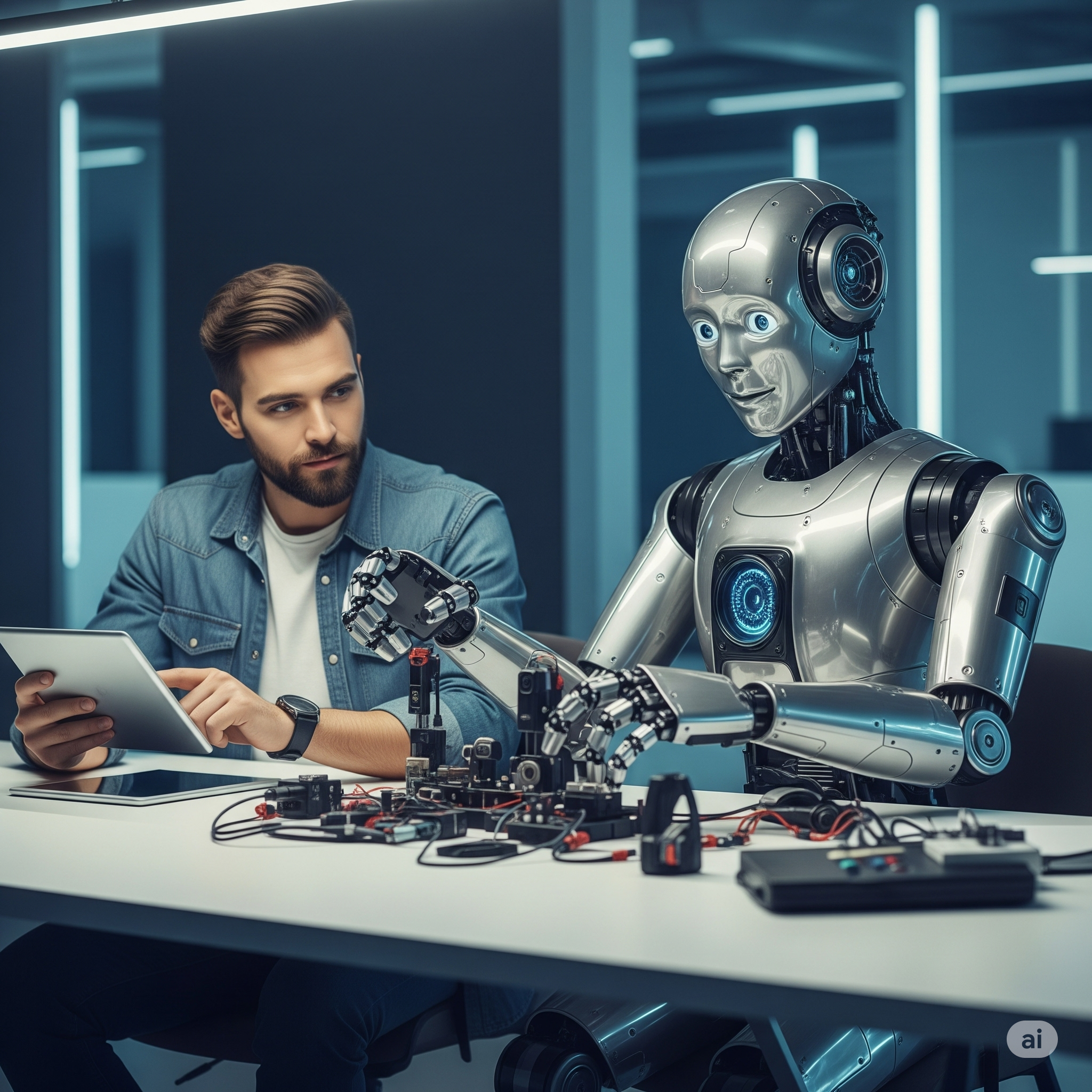
Introduction: Beyond the Fear
Have you ever felt a pang of worry about whether Artificial Intelligence (AI) might take your job? You’re not alone. Headlines scream warnings like “Robots Are Coming for Your Work!” or “AI to Replace Millions!” It’s natural to feel uneasy when you hear that AI could impact up to 300 million jobs globally, as suggested by a Goldman Sachs report. But let’s pause and look deeper. The story isn’t just about loss it’s about transformation.
Over the next decade, AI will reshape how we work, especially in tech fields, by automating repetitive tasks and opening doors to new opportunities. Rather than a battle between humans and machines, it’s a partnership waiting to happen. The World Economic Forum predicts that by 2030, AI could create 170 million new jobs, outpacing those it might displace. This post will guide you through this shift, exploring how AI changes jobs, where it excels or struggles, and the skills you can develop to thrive.
Jobs as a Tapestry of Tasks
Imagine your job as a vibrant tapestry, woven with many threads each representing a different task. AI can handle some of those threads, like the repetitive, predictable ones, but it can’t create the whole design or add the personal flair that makes it unique. Jobs aren’t single blocks to be replaced; they’re collections of tasks where AI and humans play complementary roles.
Let’s break it down with examples from the tech world:
- Software Developers: Tools like GitHub Copilot can generate basic code snippets or debug simple errors, saving hours of manual work. Yet, the developer’s role in designing innovative systems, understanding client needs, and solving unique challenges remains irreplaceable.
- Cybersecurity Analysts: AI can monitor networks and detect anomalies at lightning speed, flagging potential threats. However, it’s the analyst’s expertise that interprets these signals, crafts a defense strategy, and responds to sophisticated attacks.
- Tech Support Specialists: AI chatbots can handle routine queries about software updates, but human specialists step in for complex troubleshooting, building trust with frustrated users, and offering tailored solutions.
AI takes the load off repetitive duties, allowing you to focus on what makes your role special creativity, strategy, and human connection.
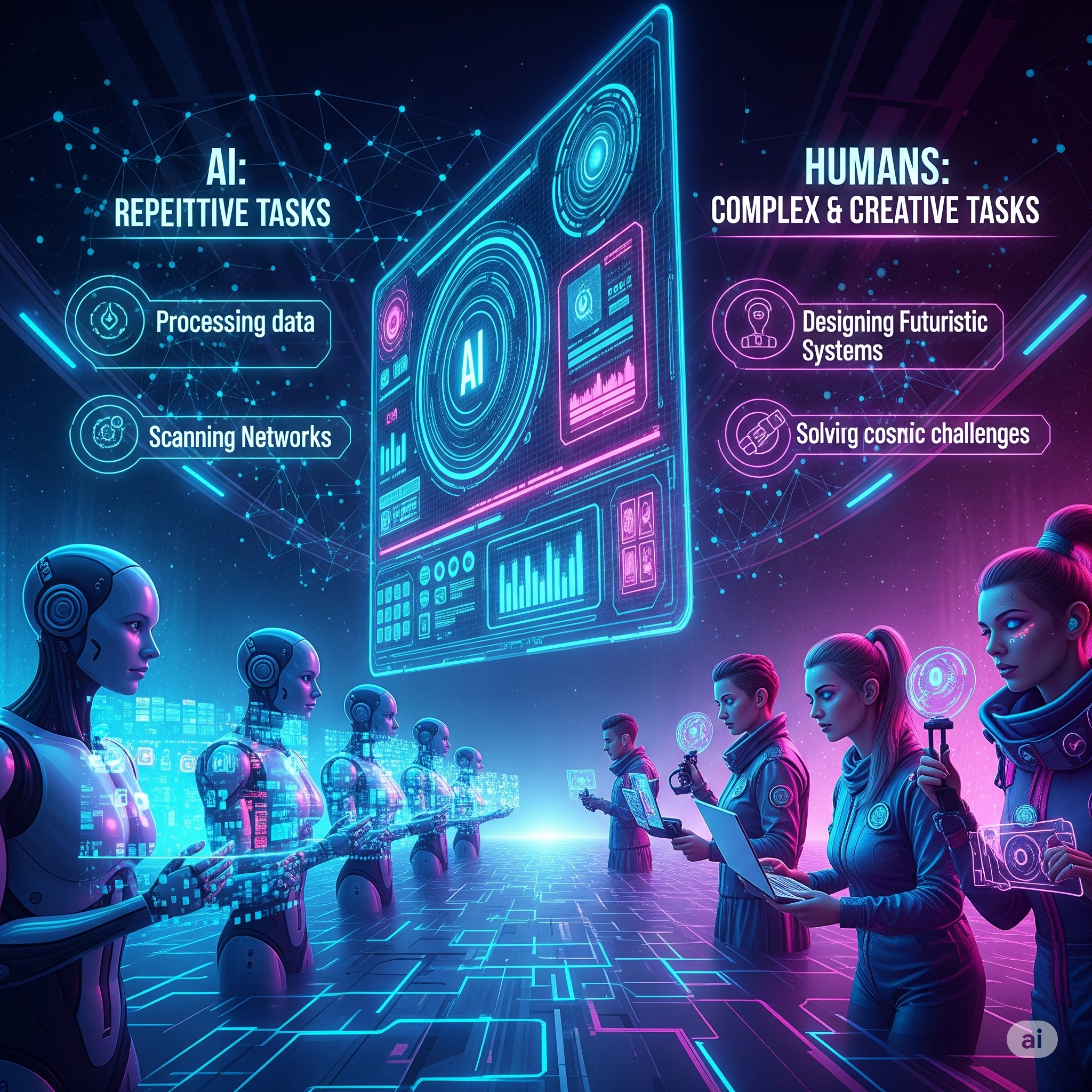
The Slow Lane: AI’s Limitations
AI isn’t a superhero that can instantly conquer every job. Its progress resembles a cautious driver confident on open roads but hesitant in chaotic city streets. Several factors slow its takeover, especially in critical roles.
The Trust Challenge
AI can produce impressive results, but it’s not flawless. Joshua Saxe, an AI security expert, highlights a “trust gap” where AI excels in controlled settings but stumbles with real-world complexity. For instance, a self-driving car might cruise highways effortlessly but falter with unexpected obstacles like construction zones or erratic pedestrians, requiring human intervention.
The Human Essence
Certain tasks demand the human touch empathy, intuition, and quick decision-making. A teacher inspiring a student, a counselor supporting someone in crisis, or a project manager navigating team dynamics are roles AI can’t fully replicate. These skills anchor human value in the workplace.
Learning Curve
AI learns from data, not experience. It lacks the adaptability humans gain through life’s ups and downs, making it less equipped for unpredictable scenarios where judgment trumps algorithms.
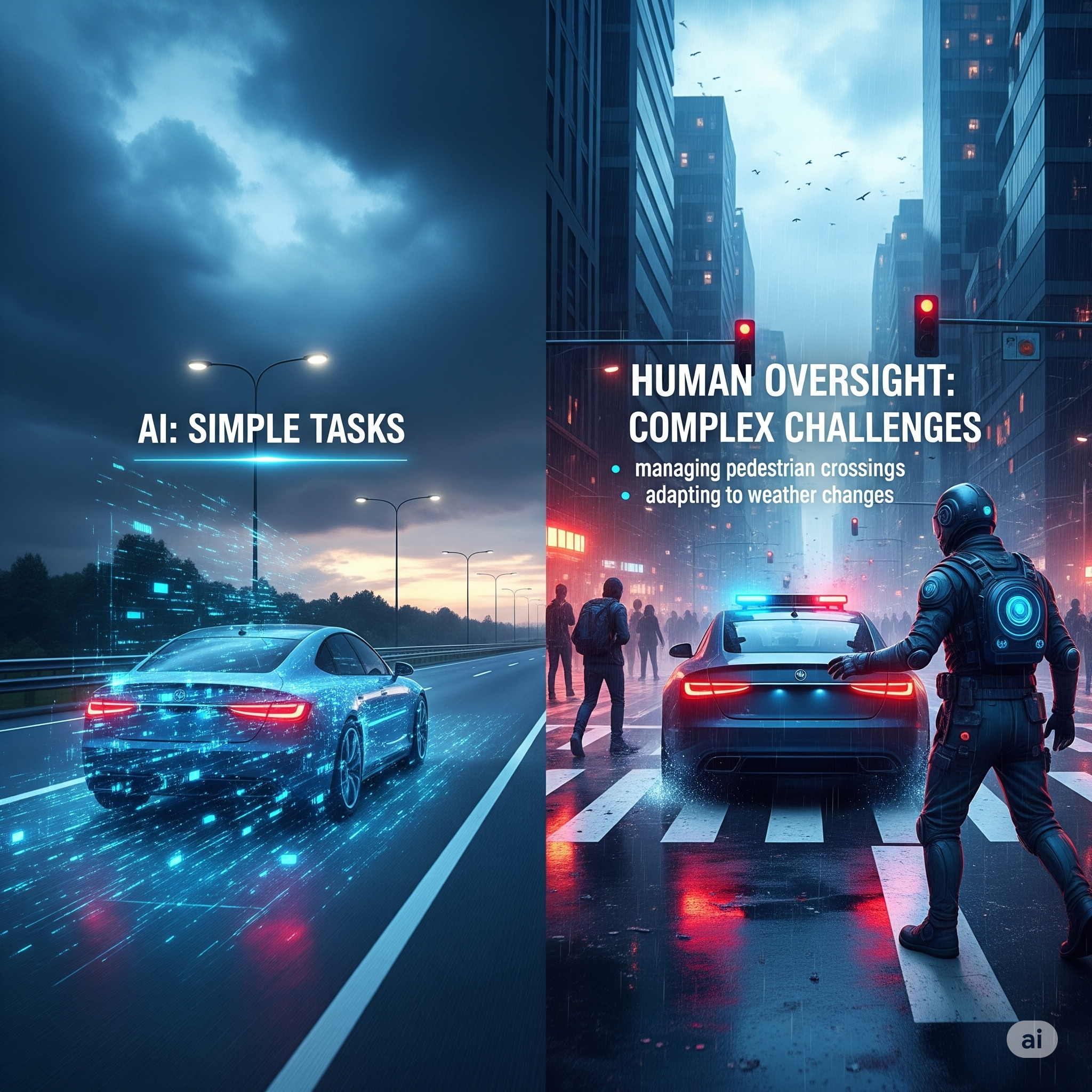
The Fast Lane: AI’s Quick Wins
While full automation lags, AI is already transforming specific tasks at breakneck speed, particularly where processes are clear-cut.
- Content Creation: Platforms like ChatGPT can draft emails, blog posts, or reports in seconds, serving as a springboard for human refinement and creativity.
- Tech Optimization: Tools like XBOW scan code for vulnerabilities, and AI-driven analytics predict system failures, empowering tech professionals to focus on innovation.
These advancements don’t replace jobs they amplify efficiency, letting you tackle higher-level challenges with confidence.
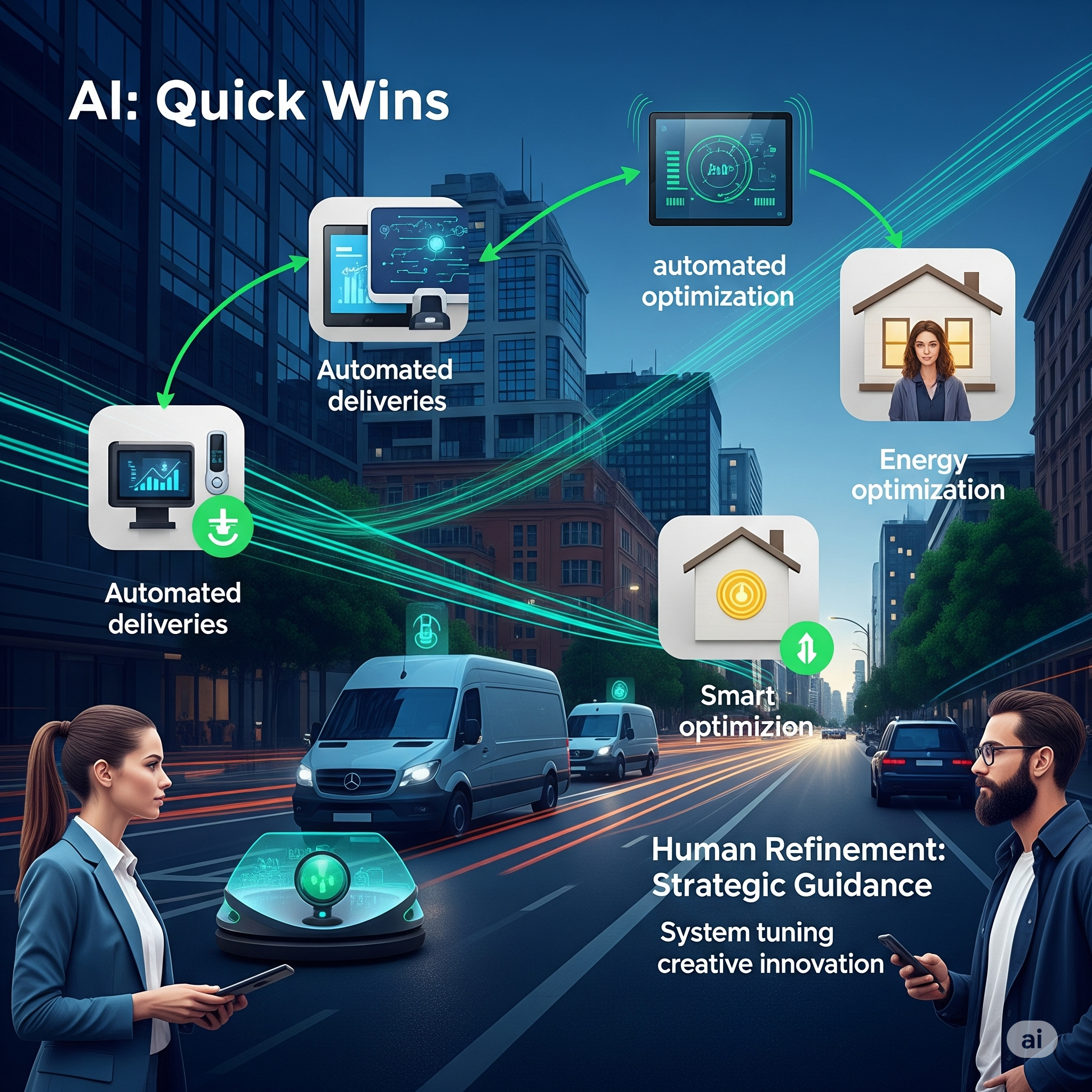
Your Superpower: Essential Skills
As AI handles the routine, your uniquely human skills become your superpower. The Future of Jobs Report 2025 identifies these as critical:
- Critical Thinking: Tackling complex problems with no easy answers, like designing secure systems under pressure.
- Creativity: Innovating new solutions, such as developing cutting-edge apps or creative marketing campaigns.
- Emotional Intelligence: Building teams and supporting colleagues, a must for leadership in tech.
- Adaptability: Staying flexible as tech evolves, learning new tools like AI platforms.
- AI Literacy: Mastering AI tools to enhance your work, turning them into powerful allies.
A McKinsey study suggests AI could free up 60-70% of your time from routine tasks by 2030, letting you focus on these high-value skills.
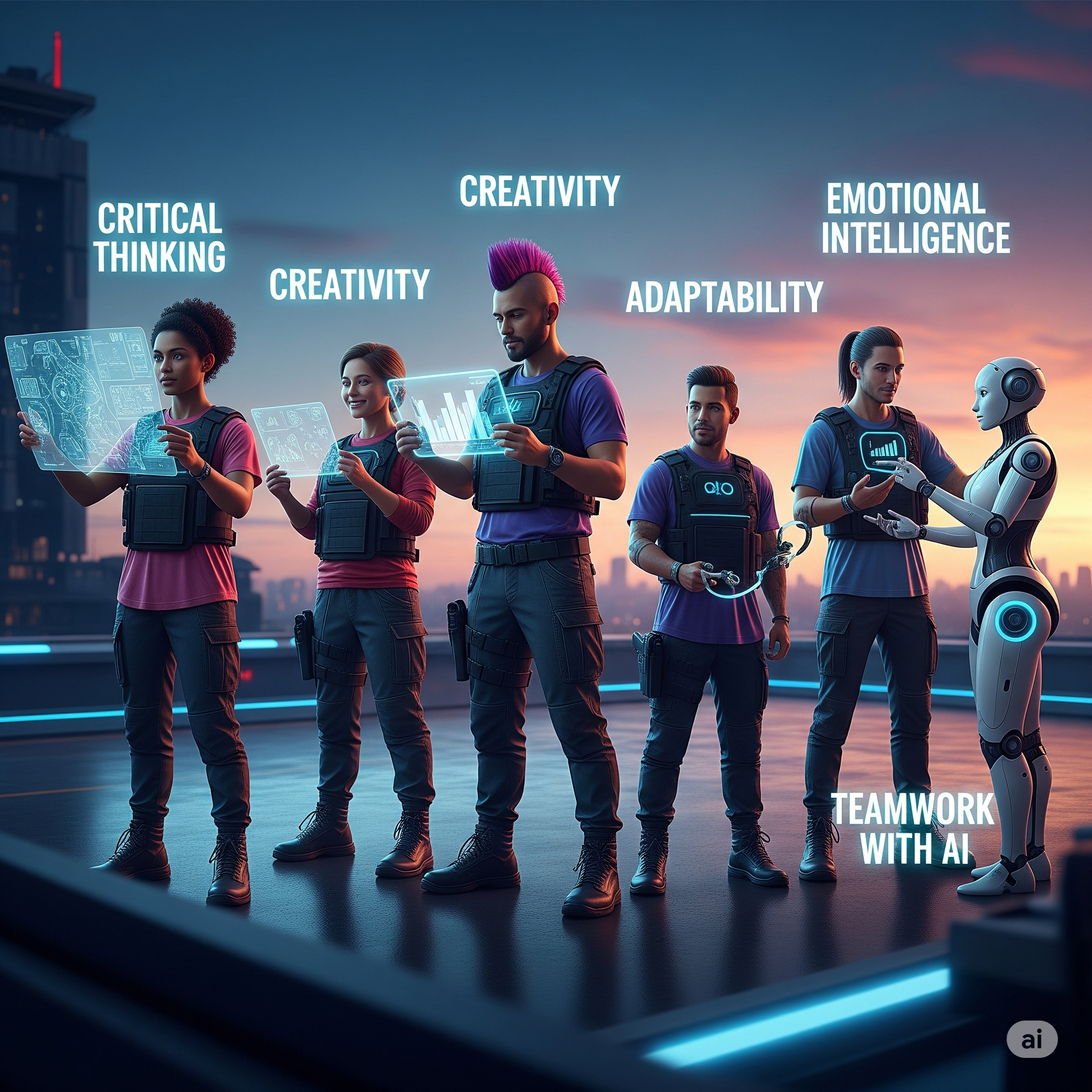
Key Insight: AI isn’t your enemy, it’s your partner. Embrace it to unlock a future where your skills shine brighter than ever.
Ready to Shape Your Future?
Start learning AI skills today! Visit Coursera for courses tailored to the AI era.
Conclusion: A Collaborative Future
AI isn’t here to steal your job, it’s here to elevate it. By 2030, McKinsey predicts AI could save you hours daily, shifting your focus to creative and strategic work. Joshua Saxe reminds us that AI needs human oversight to stay reliable, making your role more vital than ever. Invest in your skills, partner with AI, and together, you’ll build a workplace that’s innovative, fulfilling, and human-centered.
